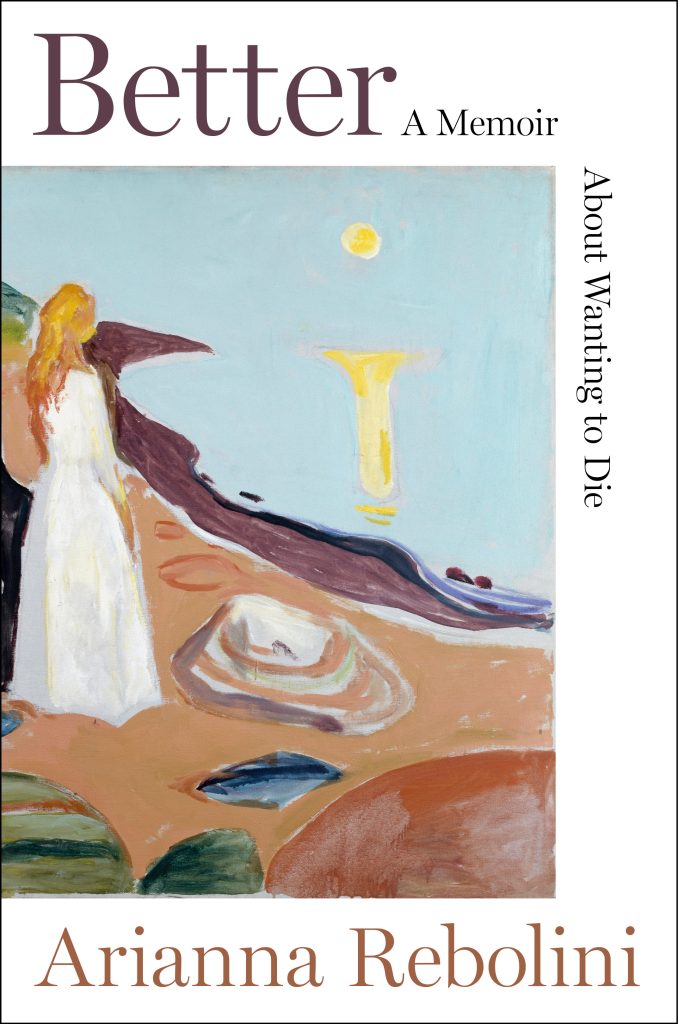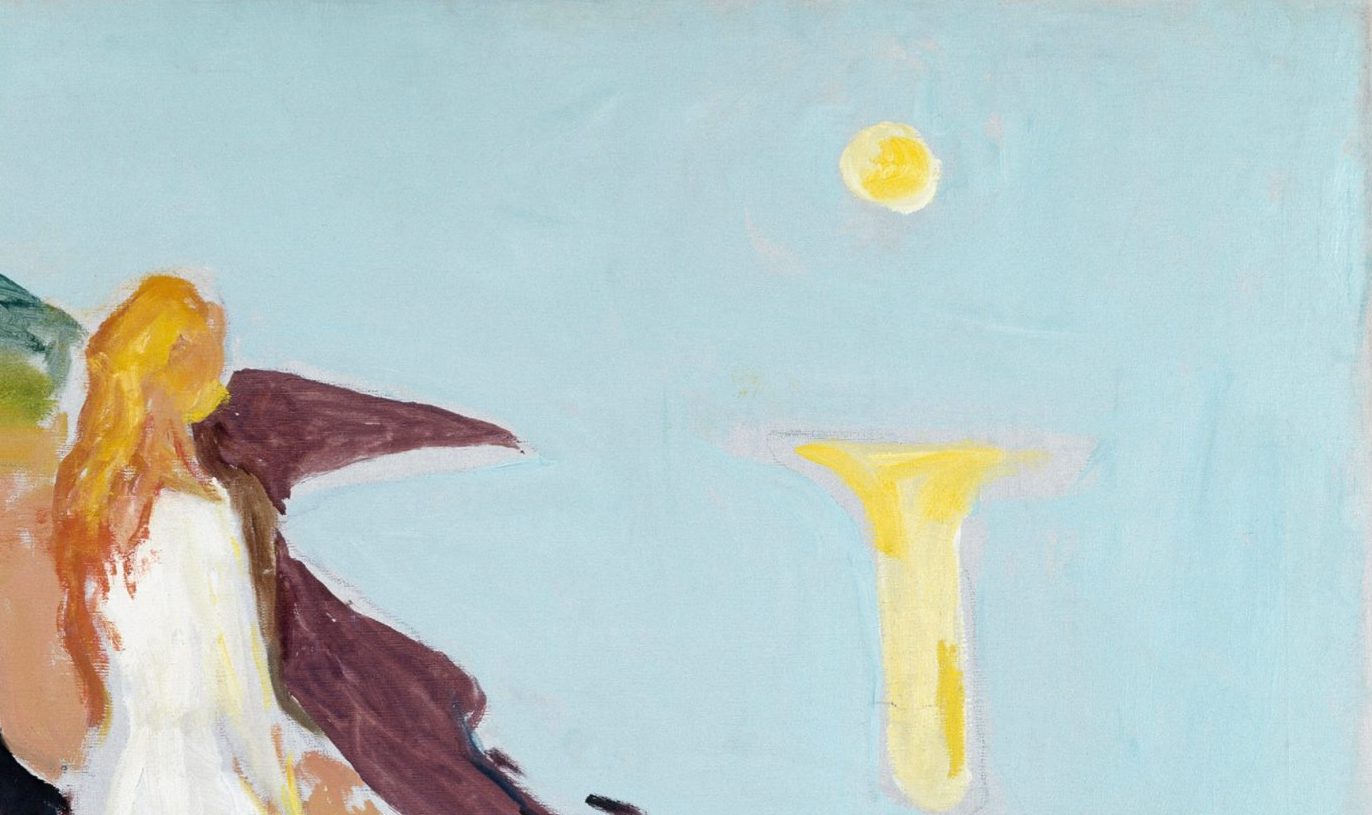Electric Literature is pleased to reveal the cover of Better: A Memoir About Wanting to Die, the debut memoir by Arianna Rebolini, which will be published by Harper on April 29, 2025. You can pre-order your copy here.
After a decade of therapy and a stint in a psychiatric ward to treat suicidal depression, Arianna Rebolini was “better.” She’d published her first book, enjoyed an influential, rewarding publishing job, and celebrated the birth of her first child. Yet the pull of suicide was still there. One night, during bath time, as her young son Theo lined the tub with toy cars, she began calculating how many pills she’d have to down to effectively end her life.
In Better, Rebolini interweaves the story of her month-long period of crisis with decades of personal and family history, from her first cry for help in the fourth grade with a plastic knife, to her fears of passing down the dark seed of suicide to her own son, and her brother’s life-threatening affliction. To understand this dark desire, Arianna pored over the journals, memoirs, and writings of famous suicides, and eventually developed theories on what makes a person suicidal. Her curiosity was driven by the morbid, impossible need to understand what happens in the fatal moment between wanting to kill oneself and doing it—or, unthinkably, the moment between regretting the action and realizing it can’t be undone. Then her own brother became institutionalized, and Arianna realized that all of the patterns and trenchant insights could not crack the shell of his annihilating depression.
A harrowing intellectual and emotional odyssey marked by remarkable clarity and compassion, Better is a tour through the seductive darkness of death and a life-affirming memoir. Arianna touches on suicide’s public fallout and its intensely private origins as she searches for answers to the profound question: How do we get better for good?
Here is the cover, designed by Milan Bozic, featuring art by Edvard Munch.

“While writing Better, I was super conscientious about maintaining an honest albeit uncomfortable exploration of suicide without turning maudlin or nihilistic; it was important to me that the cover reflected that balance, as well,” says Rebolini. “A memoir about wanting to die doesn’t need help signaling sadness, but ultimately, the book is called Better—the point of it is that it believes in survival. We went through a few rounds of possible covers, trying to land on an image that evoked that sense of hope. That’s exactly what I see in the Munch painting: the young woman looking forward, the sun bright in the distance. I geeked out about Milan’s decision to curve the older woman—that kind of looming specter—onto the spine because it feels so true to the experience of suicidality, how it can lurk behind us, how it can feel separate from ourselves. As someone who is generally obsessed with book covers, I was giddy the second I saw the mockup.
Read the original article here
